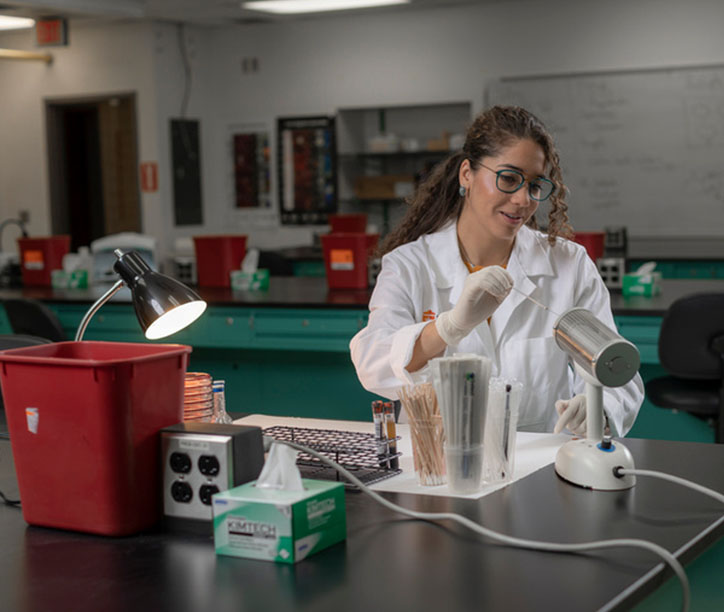Cancer Development and Progression Program
- About Us
-
Cancer Care
-
Our Cancer Programs
- Adolescent and Young Adult Cancer Program
- Blood Cancer & Hematological Malignancy Program
- Blood Disorder (Hematology) Program
- Breast Cancer Program
- Cancer Genetics Program
- Cancer Risk Reduction and Education Clinic
- Cardio-Oncology Program
- Childhood Cancer Survivorship Program
- Endocrine Tumor Program
- Eye Cancer Program
- Gastrointestinal (GI) Cancer Program
- Genitourinary Cancer Program
- Gynecologic Oncology Program
- Head and Neck Cancer Program
- Liver Tumor and Cancer Program
- Lung Cancer Program
- Neuro-Oncology (Brain Tumor) Program
- Neurofibromatosis Program
- Pediatric Neuro-Oncology Program
- Pediatric Oncology Program
- Pediatric Sarcoma Program
- Pediatric Thrombosis Program
- Radiation Oncology
- Sarcoma Cancer Program
- Skin Cancer Program
- Supportive Cancer Care Program
-
Screening and Diagnosis
- Cervical Cancer Screening Guidelines
- Colorectal Cancer Screening
- Endometrial (Uterine) Cancer Screening Guidelines
- Hepatitis and Cancer
- HPV Vaccine and Screenings
- Liver Cancer Guidelines
- Lung Cancer Screening
- Mammogram
- Ovarian Cancer Screening Guidelines
- Prostate Cancer Screening Guidelines
- Skin Cancer Screenings
- Sun and Skin Safety
- Tobacco Use and Cancer
- Skin Cancer Screenings
- Cancer Genetics Program
- Cancer Survivorship Program
- Cancer Treatments
- Conditions
-
Our Cancer Programs
- Clinical Trials and Research
- Donate and Volunteer
- Education
- Patients and Families
- Appointments
- Doctors and Locations
-
Community Outreach and Engagement Program
- Message from COE Leadership
- South Texas Cancer Burden and COE Areas of Work
- Our COE Impact
- COE Community Advisory Board
- COE Publications
- Avanzando Caminos (Leading Pathways) Study
- Estudio Avanzando Caminos (Leading Pathways)
- San Antonio Firefighters Cancer Prevention Program
- STAR Immunotherapy Study
The Cancer Development and Progression Program explores complex biologic processes that can give rise to cancer. We are unlocking knowledge that informs novel approaches to cancer prevention and treatment.
Mays Cancer Center, home to UT Health San Antonio MD Anderson Cancer Center, uses a comprehensive approach that’s accelerating discovery and translation into clinical practice.
Through laboratory studies, we are obtaining a deeper and broader understanding of cancer development and progression. Our team’s expertise in molecular and structural biology enables a level of scientific exploration that is available only in select research centers.
We work with other Mays Cancer Center researchers to quickly integrate our findings into clinical trials and practice. This efficient flow of new information means patients have timely access to leading care options.
About the Cancer Development and Progression Program
Cancer occurs as a result of multiple genetic abnormalities (mutations). These mutations differ from person to person. As cancer progresses, the mutations lead to several different types of abnormal cells. Our researchers are dissecting these growth patterns in stunning detail, making way for novel care methods.
Our research focus areas
DNA repair
Cancer occurs when the body cannot repair certain gene (DNA) mutations. We are investigating mutations associated with cancer development and progression. Our purpose is to better understand the errors that prevent DNA repair.
Our molecular biologists isolate and clone cancer genes. Then we use these genes to study DNA repair errors in the lab. We are among the few centers in the country with these capabilities. Our efforts are helping us identify specific mutations that give rise to certain types of breast cancer.
Epigenetics
Epigenetics refers to changes in how genes in cells turn on or off. These “switching” modifications are frequently present in cancer cells. Unlike gene mutations, epigenetic changes are often reversible.
Our structural biologists use sophisticated, high-resolution technologies to examine how epigenetic-fueled proteins function. Using our team’s uncommon skillset, we are unlocking clues about cancer progression. What we learn informs our drug development efforts to find innovative new therapies. Find out more about our Experimental and Developmental Therapeutics Program.
Tumor microenvironment
As cancer develops, it interacts with and alters the genetic makeup of nearby cells. The result is a tumor microenvironment — a subset of cells around the tumor.
In this microenvironment, abnormal activity develops that can help cancer cells grow and spread. The tumor microenvironment may make cancer able to resist treatment like radiation therapy and medical oncology treatments.
We are investigating what factors give rise to tumor microenvironments and how we might disrupt these environments to better treat cancer. Our efforts include:
- Breast cancer: We are recreating the tumor microenvironment in clinical models. These studies help us explore ways to slow breast cancer growth and avoid bone metastasis (cancer that spreads to bones).
- Therapy resistance: We are studying how obesity affects the tumor microenvironment by allowing the body to shield cancer cells from treatment over time.
Explore research at Mays Cancer Center
Find out more about how our research programs are helping us advance cancer care in South Texas and across the country.
Learn more about our NCI designation
Our National Cancer Institute (NCI) cancer center designation brings leading research programs. It also extends the range of our clinical trial offerings, for eligible patients.
Meet our research team
Our research team includes cancer experts from different medical specialties and scientists who share a commitment to advancing care and outcomes.

 Close
Close
